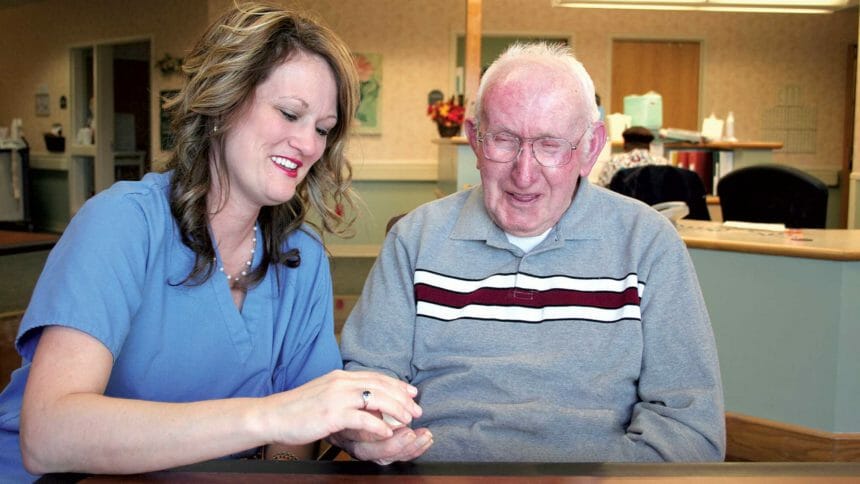
Medicaid payments for assisted living services could be in jeopardy in some states if Congress does not renew a provision in the Affordable Care Act that is set to expire on Dec. 31, according to a new issue brief from the Henry J. Kaiser Family Foundation.
Section 2404 of the act changed Medicaid’s spousal impoverishment rules so that Medicaid home- and community-based services and institutional care are treated equally when determining eligibility for long-term services and supports, the brief explained. Between 1988 and when Section 2404 went into effect in 2014, in cases in which one spouse needed LTSS but the other did not, states were required to protect some of a married couple’s income and assets when determining nursing home eligibility, but applying the rules to HCBS waivers was optional.
Almost one in six (15%) assisted living residents relies on Medicaid to pay for daily services, according to the National Center for Assisted Living.
“The impact of the expiration of HCBS spousal impoverishment protections on LeadingAge assisted living members will be driven by the states,” LeadingAge President and CEO Katie Smith Sloan told McKnight’s Senior Living.
Indeed, all 50 states currently apply the spousal impoverishment rules to HCBS waivers, according to the Kaiser Family Foundation. A foundation survey discovered, however, that if Congress does not extend Section 2404 of the Obamacare law:
- Maine and New Hampshire do not plan to apply the rules to any HCBS waivers.
- Arkansas and Illinois plan to cut back by applying the rules to some but not all HCBS waivers. Arkansas would apply the rules only to waivers for assisted living and adults with physical disabilities. Illinois would apply the rules fully to supportive living waivers and partially to waivers for the elderly and those with disabilities.
- Minnesota would apply the rules only to waivers for the elderly. The state has a separate Section 1115 waiver addressing spousal deeming for others.
- Montana was undecided at the time of the survey on how it would apply the rules.
- The other states plan to continue to apply the rules to all HCBS waivers.
Federal legislation would make a difference, according to LeadingAge.
“As a national organization, LeadingAge has consistently supported federal law establishing protections against spousal impoverishment,” Sloan said. “Our understanding is that legislation soon will be introduced in the House to extend the current protection, and we will support that measure. …If there is not sufficient time or opportunity to get legislation through Congress in the lame duck session, it is encouraging to know that most states plan to keep protections in place.”
States will still have the option to continue spousal impoverishment protections for those served by 1915(c) waivers, which many states use to cover assisted living, she noted.
“If a state covers assisted living through a different federal authority, they will need to get a separate waiver approved to continue the spousal impoverishment protections,” Sloan added. “This may be administratively burdensome for states and could cause gaps in coverage for our members’ residents.”
NCAL told McKnight’s Senior Living that it is watching the issue closely as well.
“This is something that’s hard to pinpoint exactly how much it might impact potential Medicaid beneficiaries who are seeking assisted living care, but obviously, NCAL is concerned anytime access to assisted living is possibly restricted,” the organization said in a statement.
Using the same eligibility rules for HCBS and nursing home care would help alleviate bias that favors institutional care, would help maintain the progress states have made in expanding access to HCBS, and would provide continuity for beneficiaries receiving HCBS and for states administering Medicaid eligibility determinations and renewals, the brief authors said.
Read the 14-page brief here.



